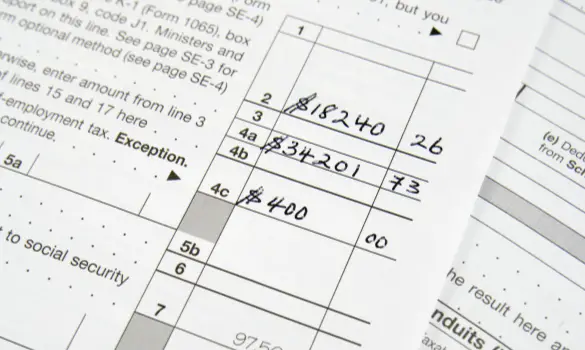Come tax season, some business may need a little extra time to prepare their paperwork. Business owners can ask for more time to file for a tax extension. If you need to apply for a tax extension in the spring, don’t sweat it. Many people need the extra time to figure out their income tax rate or annual financials. To give you some extra time, here are guidelines to filing a tax extension for your business.
Track Your Timing
When applying for a business tax extension, timing is very important. Corporations must submit the request by midnight on March 15. If you do not submit before this time, your tax extension request will be denied. Moreover, you will get charged with penalties if you do not file or ask for an extension by the deadline. Be sure to stay on top of your timing, and file your taxes within the 6 month extension period. Filing for a tax extension is simple if you do it correctly, but your business could be penalized if you fail to keep up with deadlines.
Pass-Through Business Extension
The process is slightly different for business owners who file on their personal tax return. These types of business can file for a tax extension until April 15. Additionally, different extensions apply to these different types of businesses. While corporations are given six months extension, partnerships are typically granted five months. If you have yet to form an LLC and operate as a sole proprietorship, you may have some more time. Additionally, single person LLC’s can file for a business tax extension through their personal taxes, using form 4868 instead of 7004. It’s crucial to research the specific tax extension deadlines and restrictions depending on your type of business.
Fill Out the Form
Form 7004 is an important document when applying for a business tax extension. This basic Internal Revenue Service (IRS) Form will ask you for a name, address and identification number. Completing this form can take anywhere from 3 to 7 hours. For certain types of businesses, you can apply for an extension online. The tax extension request is rarely denied, but it vital that you provide accurate business information in this form.
Estimate Your Earnings
Even though you are asking for a tax extension, you must estimate the total income tax payment for the year. To complete this step, you can use your current financial statements or the previous year’s tax information. Multiply last year’s tax rate by your current profits to determine the total tax on your income. You can also provide records of quarterly payments here. Additionally, you’ll have to know the amount of taxes you have paid. Although your business will most likely receive more time, you must do some math to acquire the extension.
Don’t Forget To Pay
Filing for a tax extension means you have more time to get your paperwork together, but you still have to pay taxes. It is a good idea to pay your taxes while filling out a request for a extension for your business. It is also smart to keep detailed books for your business using a paid or free accounting software. That way, you can use them here to pay the taxes you owe. Your business can be liable for penalties and extra fees if you forget to pay taxes. Don’t forget to pay your taxes on time and keep up-to-date with time limits.
Although tax season can be stressful, asking for an extension can alleviate some of the paperwork pain. Be vigilant about deadlines when asking for an extension. Make sure you find the correct form for your business type. Estimating the past year’s earnings and keeping track of deadlines can make the process much easier. Most importantly, remember that a tax extension gives your business more time to file, not more time to pay. Business owners can easily apply for a tax extension using these steps as a reference.
 Business First Family Business, Accounting, Finance, Investing, Marketing And Management
Business First Family Business, Accounting, Finance, Investing, Marketing And Management
